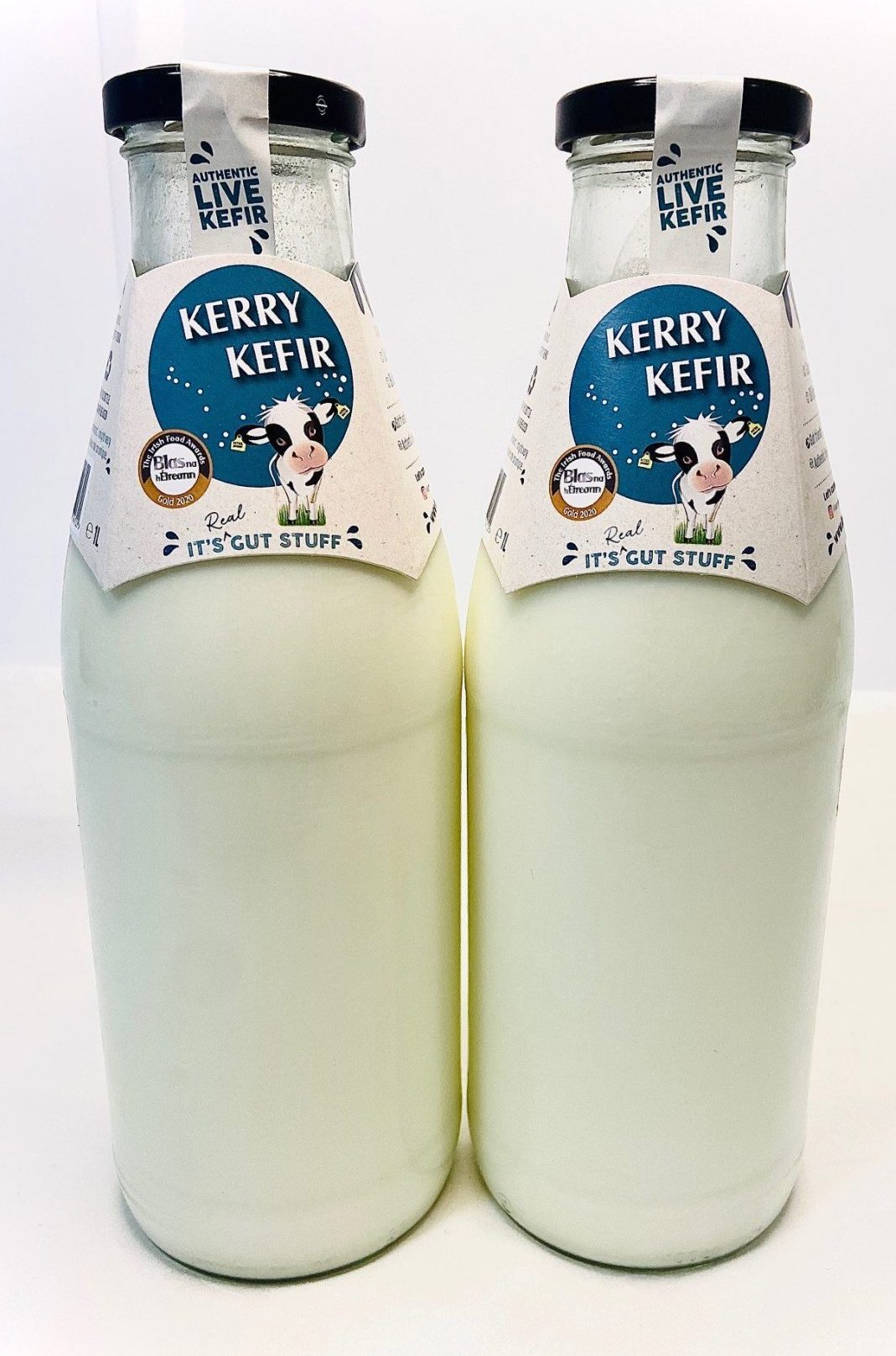Kefir has grown in popularity in recent years and is becoming more readily available in supermarkets. Kefir is a traditional fermented milk drink, rich in beneficial bacteria and yeast, has been lauded for its probiotic properties and potential health benefits. Yet, despite its growing popularity, the rules and regulations about health claims for probiotic foods remain complex and often misunderstood.
Understanding Probiotics and Regulatory Standards
Probiotics are beneficial live bacteria and yeasts that, when taken in the right amounts, can help improve your health. Research into kefir has consistently demonstrated its probiotic capabilities, showing that it can support gut health and the immune system.
However, the Food Safety Authority of Ireland (FSAI) and the European Food Safety Authority (EFSA) maintain stringent criteria for health claims made on food products. To date, there are no approved health claims for kefir in these jurisdictions, a stance that reflects the cautious approach taken by regulatory bodies towards all probiotic products. Therefore, the word ‘probiotic’ is not permitted on packaging and marketing materials.
The FSAI and EFSA regulations require substantial scientific evidence to support any health claim. This evidence must be accessible, transparent, and based on the results of controlled human clinical trials. For kefir, and indeed many other traditional probiotic foods, this level of specific research is burgeoning but has not yet reached the threshold required for regulatory approval.

The Misleading Marketing of Mass-Produced Brands
Even though the term ‘probiotic’ is not permitted on packaging and marketing materials, many brands have loosely used the term “probiotic” to describe their products, often without the scientific backing that meets the rigorous standards set by the FSAI and EFSA. This practice can be misleading, giving consumers the impression that these products offer guaranteed health benefits.
There’s a significant difference between mass-produced kefir available in supermarkets and traditional kefir. The former often relies on powdered cultures rather than the living kefir grains used in traditional kefir, impacting the probiotic quality and health benefits of the final product. For a deeper understanding of this distinction, explore our blog post on the benefits of traditional kefir made with real kefir grains versus powdered cultures here.
Contrastingly, large Fast-Moving Consumer Goods (FMCG) brands like Yakult and Actimel have conducted their own independent research, enabling them to make specific health claims about their products. These claims are based on studies that demonstrate a direct link between their product and a health benefit. However, it’s important to note that the proprietary strains used in these products and the specific health benefits claimed are unique to each brand and may not apply broadly to all kefir or fermented milk products.
The Authenticity of Kerry Kefir
At Kerry Kefir, we focus on the traditional and natural production of kefir. Our methods date back to a time-honoured process that naturally cultivates a rich and diverse microbiome within the kefir. This approach ensures that our kefir is packed with a variety of beneficial microorganisms, akin to those found in traditional kefir consumed for thousands of years.
By not labelling our product as a probiotic, we’re not diminishing its value or potential health benefits. Instead, we’re adhering to a principle of honesty and respect for the regulations that govern health claims. Our commitment is to produce a traditional, natural kefir that supports wellness without the need for specific health claims.
Many of our loyal customers have shared feedback on the health benefits they have personally seen since introducing Kerry Kefir into their diet, these include gut health, bloating, IBS, energy level, skin, gallbladder conditions, immune system and many more. However, we caveat this inclusion of this feedback on our website with the disclaimer that this is the individual experiences of our customers and are not to be construed as health claims made by Kerry Kefir.

Difference between Traditional Kefir and Probiotic Supplements
Traditional kefir and probiotic supplements both offer pathways to enhancing gut health, yet they differ fundamentally in their nature and benefits. Traditional kefir is a fermented milk drink, rich in a diverse community of live bacteria and yeast. This not only provides a wide array of beneficial ‘probiotic’ bacteria but also includes vitamins, minerals, short chain fatty acids and bioactive compounds that contribute to its health benefits.
On the other hand, probiotic supplements are concentrated forms of specific strains of bacteria designed for targeted health outcomes. These supplements lack the nutritional complexity of kefir, offering a more focused approach to probiotic intake rather than the broad spectrum of benefits found in the natural fermentation of kefir.
This distinction highlights the unique advantage of consuming traditional kefir: it supports gut health through a holistic, natural food source, encompassing a variety of live bacteria and yeast along with essential nutrients, in contrast to the single-strain focus typical of many probiotic supplements.
Navigating the Future of Kefir and Health Claims
As research into probiotics and fermented foods continues to evolve, we may one day see a regulatory landscape that can accommodate the unique properties of traditional products like kefir. Until then, at Kerry Kefir, we remain dedicated to producing our kefir with the utmost care and respect for tradition, ensuring that each batch is as beneficial as it is delicious.
We believe in the power of kefir to support wellness and offer a natural solution to those seeking to improve their gut health. By choosing Kerry Kefir, you’re choosing a product that values authenticity, tradition, and the well-being of its customers above all else.
Disclaimer:
The information in this blog post is based on the research article linked above and is not to be construed as health claims made by Kerry Kefir. It is important to note that the Food Safety Authority of Ireland (FSAI) has not approved any health claims associated with kefir or probiotics.
Check out our latest blog posts
Boost your immune system for back to school
As the back-to-school season approaches, keeping your family's...
Exploring the Gut-Brain Connection: How Your Digestion Affects Your Mental Health
The connection between our guts and our brains, often referred to as...
What is the Gut Microbiome?
The gut microbiome is a complex and dynamic ecosystem of...
